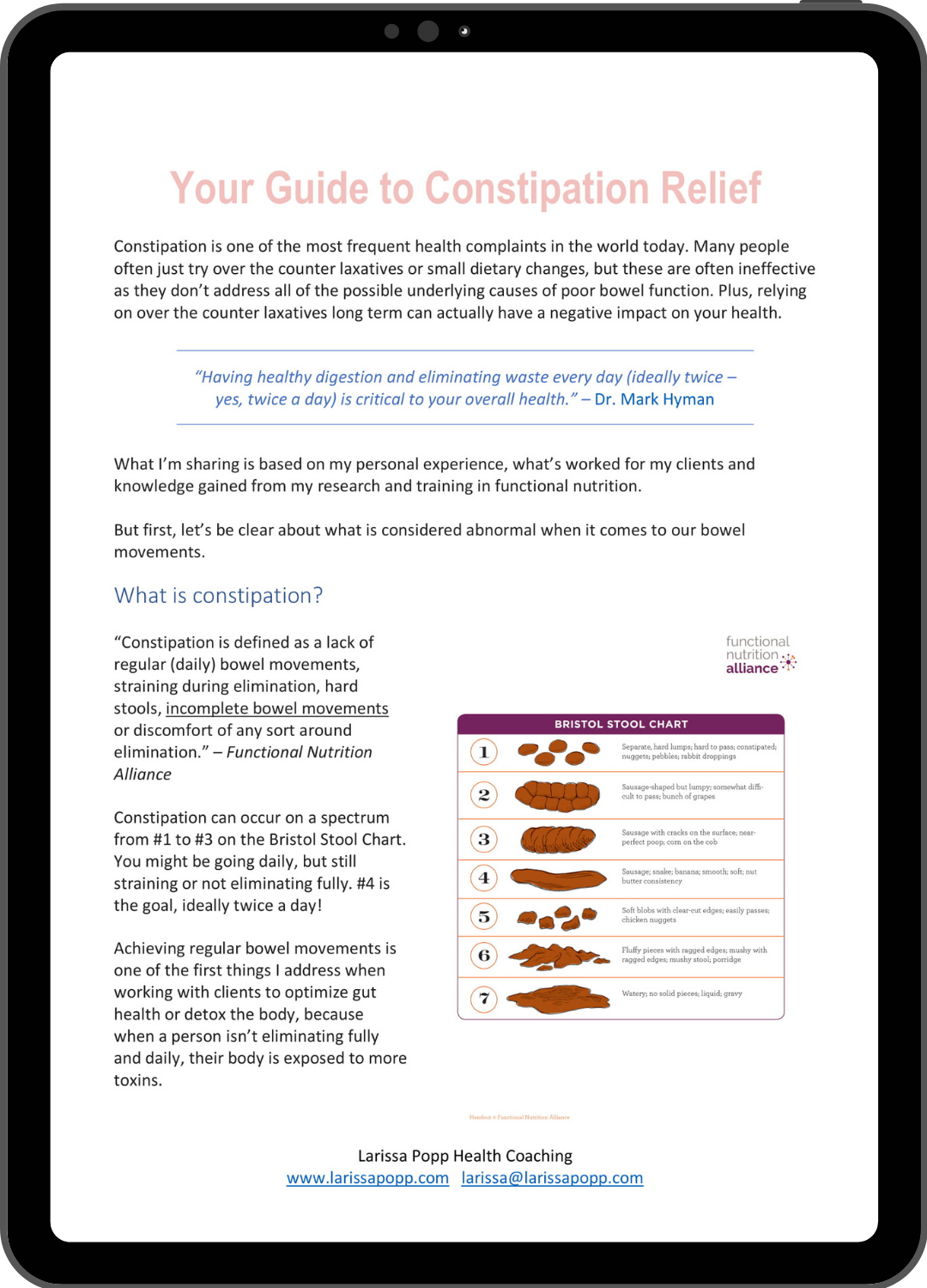“Breast cancer, almost unheard of 100 years ago, now affects 1 in 8 women over their life time…[however] research from the field of nutritional medicine has shown us that there is a clear way to improve and sustain our health and fight off illnesses in all its forms. ” – Dr. Joel Furhman (5)
“What doctors call early detection is actually late detection… A woman is considered healthy until she shows signs of breast cancer, but if she’s been harboring a malignancy for 2 decades, can she truly be considered healthy? People who do the right thing by improving their diets in hopes of preventing cancer, may in fact be successfully treating it as well.” – Dr. Michael Greger, How Not to Die (1)
As I shared in last week’s post on how to prevent cancer (and most other diseases), diets that revolve around whole plant foods (vegetables, whole grains, fruits, beans, nuts and seeds) significantly lower the risk of most cancers, and other diseases as well. This recommendation comes from the American Institute for Cancer Research, as well as many leading integrative oncologists, wellness experts and nutritionists.
In this post I want to talk about some specific food recommendations, based on the latest research, for the prevention of breast cancer.
One study following ~30,000 postmenopausal women (over 7 years) with no history of breast cancer showed the incredible power of food and lifestyle choices in the prevention of breast cancer. Women who followed just 3 out of the 10 recommendations by the American Institute for Cancer Research (limiting alcohol, eating mostly plant foods, and maintaining a normal body weight) had a 62% lower risk of breast cancer on average.
Another study of ~1500 women diagnosed with breast cancer showed that making simple behavioral changes such as eating 5 or more servings of fruits and vegetables per day and walking for 30 minutes, 6 days per week, was associated with a significant survival advantage. (1)
Meat and Breast Cancer Risk:
When muscle meat (beef, pork, fish and poultry) is cooked using high temperature cooking methods (roasting, baking, pan frying, grilling) it increases your risk of cancer. Boiling meat is safest. Also, eating meat that never goes above 212 degrees F is less DNA damaging compared to meat dry cooked at higher temperatures.
Baking chicken for as little as 15 minutes at 350 degrees F leads to heterocyclic amine (HCA) production which is a carcinogen. The longer meat is cooked, the more HCAs form. This explains why eating well-done meat is associated with increased risk of cancers of the breast, colon, esophagus, lung, prostate, pancreas and stomach.
The Long Island Breast Cancer Study reported in 2007 that women who eat more grilled, BBQed or smoked meats over their lifetime, may have as much as 47% higher odds of breast cancer.
And the Iowa Women’s Health Study found that women who ate their meat very well-done had nearly 5 times the odds of getting breast cancer compared with women who preferred their meats served rare or medium.
These carcinogens (HCAs) can also be found in fried eggs so you should also cook your eggs at low temperature, or boil/poach them.
Luckily, your body can rapidly rid itself of their toxins once exposure ceases (within 24 hours), but when you are constantly consuming meat meal after meal, your body is constantly being exposed and over time this can lead to cancer. So even if you don’t want to give up meat, limit your consumption to a few small servings per week, and choose low temperature and quick cooking methods most of the time such as boiling or a quick wok stir-fry.
Alcohol and Breast Cancer Risk:
In 2010 the WHO formerly upgraded its classification of alcohol to a definitive breast carcinogen.
But you’re probably thinking, what about wine?
Well, interestingly, while the Harvard Nurses’ Health Study found that even less than one drink a day may be associated with a small increase in breast cancer risk, drinking only red wine was NOT associated with breast cancer risk.
Why? According to the study, a compound in red wine (that comes from the skin of dark purple grapes) appears to suppress the activity of an enzyme called estrogen synthase, which breast cancers can use to create estrogen to fuel their own growth. So red wine appears to cancer out the elevated breast cancer risk associated with alcohol intake (when consumed in moderation).
And of course, you can reap the benefits of red wine without the risks associated with alcohol by simply drinking red grape juice (without added sugar) or eating the purple grapes themselves, preferably ones with seeds as they appear to be most effective at suppressing estrogen synthase.
Strawberries, pomegranates, and plain white mushrooms may also suppress the potentially cancer promoting enzyme. (1)
Plants to Eat for Breast Cancer Prevention:
According to Dr. Joel Furhman, to have what he calls “super immunity” you should try to include G-BOMBS in your daily diet: Greens (including cruciferous greens), Berries (& pomegranates), Onions, Mushrooms, Beans, and Seeds.
- Consuming lots of leafy greens can actually make your DNA less susceptible to changes that can lead to cancer. And in particular cruciferous greens have even more potent anti-cancer fighting properties.
- The entire allium family, onions, leeks, garlic, and chives, have anti-cancer, anti-inflammatory and anti-oxidant compounds. Increased consumption of allium family vegetables can reduce the risk of cancer at all common sites by detoxifying carcinogens in your body and they also have angiogenesis inhibiting effects that can stop cancer cell growth (5). As for seeds, flax and sesame seeds have the most powerful anti-cancer effect due to their lignan content but its good to eat a variety of seeds, as well as nuts, as they each have different nutritional qualities. The red onion is especially powerful – it can kill up to 75% more cancer cells than other varieties. (6)
- Mushrooms have also been shown to be particularly effective at preventing breast cancer in both pre- and post-menopausal women. Eating just 10 grams a day (one small white mushroom), can give women a 64% reduced risk of breast cancer, according to one study. And even lower risk was shown with women that also consumed green tea daily (82-89% reduced risk). (5)
- In terms of beans and seeds, Dr. Furhman suggests consuming 1/2 cup of beans daily, and a handful of seeds.
Inadequate fiber consumption has also been shown to be a key risk factor for breast cancer. A minimum of 25 grams of fiber is needed to reduce breast cancer risk. This is not difficult to achieve if you’re eating a mostly whole foods plant-based diet.
In particular, flax seeds have been shown to be particularly effective at preventing, and even treating, breast and prostate cancers. Just one tablespoon of ground flax seeds per day (3) And the Harvard Nurses’ Health Study showed that those women who ate the most beans had the lowest incidence of breast cancer.
Eating even just one apple a day (with the peel) could lower your odds of breast cancer by 24%, and lower odds of other types of cancers. Apple anti-oxidants are concentrated in the peel so make sure to eat the whole apple, preferably organic as apples are high on the Dirty Dozen list. But if the choice is between eating a conventional apple or no apple at all, eat the conventional apple, as the benefits from eating the whole fruit have been shown to outweigh the risks associated with pesticide contamination (2).
What about soy?
Eating non-GMO soy can also help prevent and treat breast cancer.
Soy has gotten a bad rap because it contains phytoestrogens and the fear is that these act like estrogen in the body and would bind to estrogen receptors in the body. However, in reality they can actually have an anti-cancer effect.
From one of the latest studies on soy and breast cancer (funded by the NCI) including 6,000 patients from U.S. and Canada – results showed that there was a 21% reduction in the risk of death from breast cancer in those women who consumed the most soy.
However, you should only consume the less processed versions of soy (i.e. tempeh, miso, edamame, tofu, and soy milk in moderation), and only organic and non-GMO soy.
Good news for meat eaters…
A study showed that eating a heaping side of broccoli or Brussel sprouts could decrease carcinogen exposure from eating cooked meat, and eating such veggies days or weeks before a BBQ can even be defensive against the carcinogens in the meat.
Broccoli and Brussel sprouts are members of the cruciferous vegetable family – the most potent cancer-fighting family of veggies – presumably eating any cruciferous vegetables would have the same effect. See my blog post about cruciferous vegetables to make sure you’re cooking them the right way to get the maximum cancer-fighting benefits.
The Bottom Line:
Consuming a diversified, mostly whole foods, plant-based diet is best for preventing breast cancer, along with most other cancers and disease. Different foods provide different benefits which is why you want to also vary the types of fruits and vegetables your consume and not just eat broccoli as your only vegetable every day. For example, cauliflower, Brussel sprouts, green onions, leeks and garlic abolished breast cancer growth completely in one study, while other vegetables did nothing or only halved cancer growth. And radish did nothing for pancreatic cancer cells but was 100% effective at stopping the growth of stomach cancer cells. (1)
Here’s a summary of the recommendations I shared in this post:
- Eat G-BOMBS on a daily basis, or as often as possible, to optimize your immune system:
- Greens (esp. cruciferous greens such as kale, arugula, cabbage, Brussel sprouts & broccoli),
- Berries & pomegranates,
- Onions, leeks & garlic,
- Mushrooms (even just 1 white mushroom a day can give you up to a 64% reduced risk of breast cancer),
- Beans (at least 1/2 cup a day), and
- Seeds (at least a small handful a day).
- Consuming flax seeds can have a significant effect in the reduction and treatment of both breast and prostate cancers. Consume at least 1 tablespoon of ground flax seeds daily. See my
- Drinking green tea daily can reduce breast (and prostate) cancer risk.
- Avoid or minimize alcohol consumption, and if you do choose to drink, have red wine.
- Minimize your meat consumption to a few small servings per week and choose low heat cooking methods (such as boiling) over high heat cooking methods (such as BBQing). Also, the longer the meat is cooked at high temperatures the more carcinogens will be formed so opt for your meat rare or medium over well-done. And only consume meat from animals raised in a natural way.
- Try to always include a big serving of cruciferous veggies (such as broccoli, cauliflower, cabbage, Brussel sprouts, etc.) and/or onions/garlic when eating barbecued or roasted meat and fish, to combat against the carcinogens formed when cooking. It doesn’t have to be consumed during the same meal, but having at least a 1/2 cup serving of cruciferous veggies each day and a 1/2 cup of onions can significantly reduce the risk of breast and other cancers.
References:
- Dr. Michel Greger. How Not to Die, 2017.
- https://nutritionfacts.org/2013/06/25/apple-peels-turn-on-anticancer-genes/
- https://nutritionfacts.org/video/can-flax-seeds-help-prevent-breast-cancer/
- Interview with Dr. Keith I. Block on “Modern Breakthroughs in Cancer Recovery” as part of the Hay House World Cancer Summit, 2018.
- Dr. Joel Furhman. Super Immunity, 2011.
- https://www.youtube.com/watch?v=mh9IcNoineM


